In conversation with Chris Thorpe
October 31, 2015
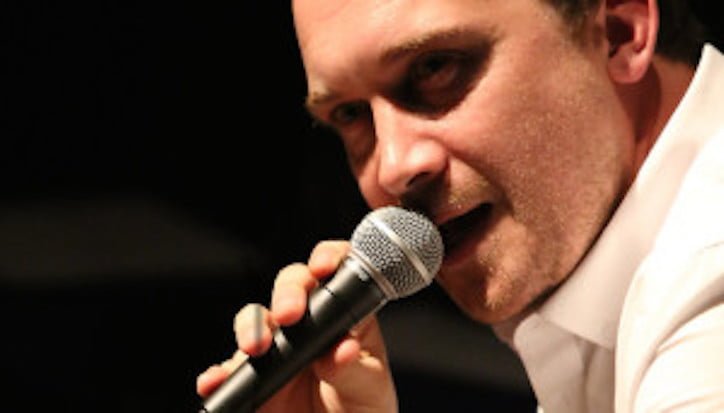
Image courtesy of wyp.org.uk
Writer and performer Chris Thorpe has been at the forefont of cutting-edge theatre for over a decade. Whilst I hate using such throw-way, generic terms like ‘cutting-edge’, in this instance it honestly does seem the right way to describe Thorpe’s work. He is constantly pushing the boundaries of what theatre is, his plays thoroughly de-constructing all pre-conceived notions of how theatre ‘should’ be, or how you as an audience member ‘should’ react. Instead, you are invited to think, to get angry, to feel sad, to truly interact with the person in front of you. Speaking to him is no different: you’re asked to really engage in an absolutely fascinating discourse about politics, theatre, and the state of the arts (pun intended) we find ourselves in today.
I must admit that I was exceptionally nervous. It isn’t often that you get the chance to speak to someone who has genuinely had an impact on your own creativity and way of thinking. Looking back to four years ago, I remember my A-level self sitting on a bus home after attending a devising workshop at school with ‘Manchester-born poet and playwright’ Chris Thorpe. It was one of those moments where you’re granted a fresh perspective on something that could otherwise so easily be skewed, and it was a perspective that was so attractive to me. Rather than being about telling a story or sharing an idea, Chris invited us to think about theatre as an exploration of the human condition. How do we understand a story? What is our role in the creation of meaning and expression? How is the unique relationship between audience and performer established? And – most importantly – how can theatre allow us to explore the psychological processes at work in our day-to-day lives? These questions have formed the basis of my interests over the last few years, and little did I know that four years down the line I would be sitting in my little flat in Leeds on the phone to the very same man who inspired them!
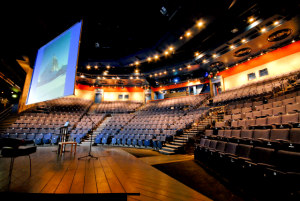
Image courtesy of leedsconfidential.co.uk
These ideas of the psyche and the socio-political forces that influence us throughout our lives can be traced throughout Thorpe’s extensive career as both a writer and a performer, and nonetheless in Thorpe’s one man show – ‘Confirmation’, coming to the West Yorkshire Playhouse on Monday the 2nd November. Without giving too much away about it, or over-shadowing the review that will be gracing our website over the next week or so, take a look at the exceptionally interesting and thought-provoking things Chris shared with us about his own experiences creating this unique piece of theatre:
TSOTA: Rather than asking you what the show is about, I would love to hear your thoughts on what you think the show is doing as a piece of theatre?
CT: I think there’s been a lot of focus on what the show is about, due to the attention-grabbing nature of it – there’s a lot of stuff about racial viewpoints that people might find really difficult to hear. I certainly did. There’s a lot of things which seem so violent and which people don’t want to hear about, which is why it can be so easy to fixate on these. But actually, I think you’ve put your finger on it – for me the show is about what’s going on in the room. What I am trying to make people aware of is the way that our minds process information, through the lens of the conversations I have had, and that – to me – is the actual subject matter of the show. Obviously the viewpoints are extreme, but I want to show how de-stabilising it can be for someone who thinks that they’re completely reasonable to have to engage with views that they would normally oppose to. It’s about when people leave – and certainly for me when I leave – having that kind of fresh awareness of the way that their minds work. It’s not about getting rid of those cognitive biases and making us into new people, because actually we can’t do that; we can’t get rid of things like confirmation bias, but we can become aware of them. If I talk about it and we all think about it in the room then it raises really interesting questions about the ways we have evolved to think. Otherwise it would be easy for me to lazily fall into that whole thing of ‘I’m just talking about some cool stuff that I did…’ which is a kind of documentary style that I don’t really want to do.
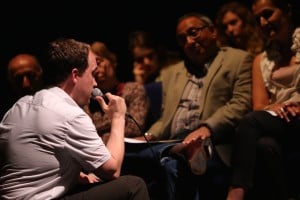
Image courtesy of chinaplatetheatre.com
TSOTA: How do you think the performance differs from audience to audience, and city to city?
CT: I think people bring local concerns to it…it feels like a great representation of the people who are in an area. It can have a really immediate relevance to whatever’s going on in the country at the time. Doing the show immediately before the election in Liverpool had a very different feel to doing it a couple of weeks before in Congleton where there was a possibility that Nigel Farage was going to be their MP. That didn’t happen, but it brought a flavour to the people who came. All the shows are really different. Doing it to an international audience in Edinburgh this summer as part of the British Council showcase was different – people bring their own experiences from outside of Britain to the show. It’s been fascinating. Underpinning it all is the fact that no matter where I am the thought processes are working in similar ways, and that’s what I’m exploring.
TSOTA: I’ve read about people stopping the show and having a conversation with you right there and then. How do you react to that? Is that someone you want to happen?
CT: If people want to start a conversation in the show then I know that I can have a completely genuine conversation with them, if that’s what they want. But the show is constructed as a piece of art, it runs in a certain way. I would never ever try and get a reaction out of somebody or stop people as they walk out or anything like that. That is not what the show is for, so if people talk to me it’s not something I plan to make happen, but I am there to have a genuine conversation. It takes a lot for an audience member to do that in the middle of a show and so I respect that. I’ve had lots of conversations with people during the show which have been really positive, and at the same time people have walked out.
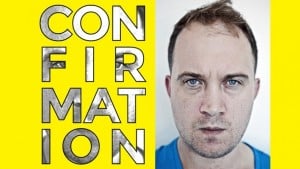
Image courtesy of warwickartscentre.co.u
TSOTA: Obviously you’ve performed it so many times, and you’re going to go on to do the same. How do you keep it fresh?
CT: You’ve got to remember that however many times you might have done something, no one in the room has seen it before…except maybe the technical manager who’s on the road with us…but yeah, I try different ways of doing that. I’m looking at the motorway now and that’s how I always think of certain shows. If you come out of the show and you feel like you’ve done that thing where you’re driving down the motorway and you can’t remember a thing about the actual driving then you’ve failed. That show has failed. And that’s what I try not to do. No-one wants to be bored at work, and no-one wants to watch someone who’s bored at work.
TSOTA: What is it that inspired you to start researching this and putting it together? Was it a general interest that developed?
CT: I’ve always been interested in the extremities of politics, but that actually wasn’t the reason I started doing this. It was confirmation bias. Just before I had a conversation about making the show with Paul Warwick, Ed Collier and Matt Burman at Warwick Arts centre, I had read about confirmation bias, and I was finally able to name something that I had always known that I did, but been unable to define it. It’s all about an unanswerable question for me, and then finding a story that allows me to get to that question. So rather than trying to answer it, I try to ask it in ways that allow everybody in the room to be engaged with it.
TSOTA: Are there any specific playwrights or theatre-makers that you can identify as people that you really admire, or people whose work has really inspired you leading up this point?
CT: Well, I’m always inspired by the team of the company that Rachel (Chavkin) runs. I’ve known them for a number of years and I’ve known Rachel for a number of years, and I find the ways in which they ask questions fascinating. And Tim Crouch is someone that I find really really exciting. Nigel Barrett, Gemma and Yusra Warsama who were in a play that Sam directed with the Royal Exchange called ‘There has possibly been an Incident’ are great. As is Hannah Walker who I have made a lot of work with, who actually comes from a poetry background and doesn’t really like theatre, which I find incredibly interesting. Melanie Wilson’s work with sound, poetry and poetics is SO different to what I do but I love it. The first time I ever watched Forced Entertainment back in the 90’s completely deconstructed what I thought was possible on stage, which to me was incredible. Also, Katie Mitchell’s work – any artist who isn’t willing to compromise what they do is incredibly inspiring. Even when it’s stuff that I might find difficult to understand, or irritating at points…the fact that someone has dedicated themselves to really thinking about what is at the centre of our communication is what I find inspiring. And it’s not just established artists. Things that I’ve seen at the NSDF have been amazing. Lulu Raczka and her company Barrel Organ did a show called ‘Nothing’, which I still think is one of the most exciting things I’ve seen in the last few years. And the stuff that’s going on at Transform…it’s on the cusp of creating something really very exciting, and driving cultural change in Leeds. There’s a clear thinking and a lack of compromise at the heart of all this which I think is really fantastic.
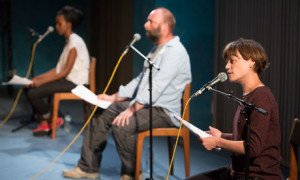
Image courtesy of royalexchange.co.uk
TSOTA: Finally, what aspect of theatre do you think we need to be really pushing at?
CT: I think that individual artists need to start taking all the responsibility they can for equality of representation in their work. That’s a big thing at the moment, and I think that individual artists can and should take responsibility for that. There’s a lot of political theatre about but I think we need to push that. There needs to be stronger advocacy for theatres really being connected to social change, and I think that they need to be able to stand up and collaborate and do that. I was out in Germany recently visiting the Schauspeilhaus in Hamburg, where the theatre is actually providing a space for refugees coming from Europe to sleep in. That level of engagement where theatre takes an active interest in the local political affairs is the way that theatre needs to go. We need to think of theatre as establishing that connection, and we need to bring that connection onto the stage. Theatre loses when it starts to try and compete with all the other ways that we can hear stories, all the other easier ways that we can be entertained. Theatre needs to acknowledge that it’s an effort, and repay that effort because the audience will come with you. That, representation and equality, active local political engagement, the re-imagining of the theatre as a space is what we need to do.
If you’ve enjoyed reading about this as much as I enjoyed listening to it then make sure you get your hands on those tickets before they sell out! Confirmation is on at the West Yorkshire Playhouse THIS Monday the 2nd of November up until the 4th. Tickets available here.

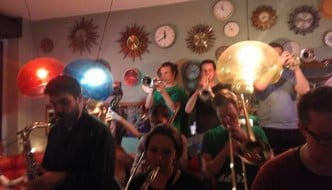
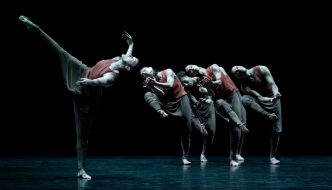
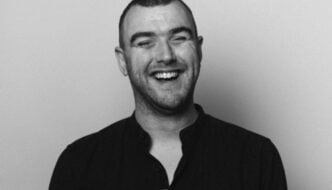
Comments